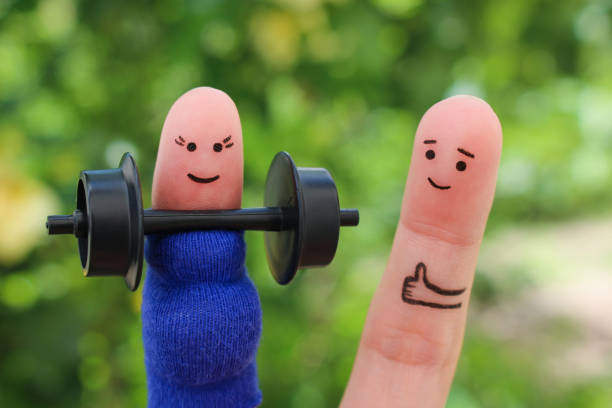I became regular in the gym after a few months after the delivery of my first daughter as I wanted to get rid of the excess weight. But what is fascinating about exercising is that after some time, you get addicted to it, whether you see any change in your body or not. I did lose some fat (weight, not so much) but I continued exercising because I was getting stronger, I could run longer, I could lift heavier, I had so much stamina, and on many days just to feel good about myself.
Five years later, I am now pregnant with my second child and I was pretty regular in the gym, but ahoy the third trimester. With the onset of pelvic pain, my stamina is limited and I can’t lift heavy but I still try to break some sweat on most days of the week with light to moderate intensity exercise. This blog post discusses exercising safely and the benefits of exercising during pregnancy.
10 benefits of exercising during pregnancy

Studies suggest that moderate-intensity exercise on most days of the week, amounting to 150 hours/week, improves maternal and fetal health during pregnancy and even after that. The mother and child benefit in several ways:
- You will not gain that extra weight: Though a 7-12 kg weight gain in pregnancy is considered normal, if you are not very active, you can easily end up putting on more weight than required. Exercising keeps the weight in check.
- You will get relief from those backaches, constipation, and bloating: Exercise gives relief from all these troubles by promoting circulation, improving muscle tone, and supporting healthy digestion.
- You will feel happier and more energetic: Thanks to the endorphins or ‘happy hormones’ released during pregnancy, you will find your mood and spirit lifted.
- You will sleep better: You will be a little exhausted after that gym session and the amount of stress hormones will reduce in your body, offering you a good night’s sleep.
- You will get toned and strong: The resistance training, irrespective of when done, pack more muscles and give one a toned look.
- You will be able to prevent and manage gestational diabetes: Exercise regulates blood glucose levels and reduces insulin resistance helping you keep GDM at bay. Even when you have GDM, exercising regularly will improve your blood glucose levels and will reduce the need to take exogenous insulin.
- You will have a shortened labor and reduced risk of having a C-section: Some studies suggest that a good fitness level of the mother can result in shorter labor, fewer medical interventions, and less exhaustion during labor.
- The child will achieve milestones earlier (limited evidence): One study found that pregnant women who engaged in regular physical activity had infants who scored higher on tests of fine motor skills, such as grasping and manipulating objects, compared to infants born to women who were less active during pregnancy. Exercise during pregnancy has also been shown to have a positive effect on a woman’s overall physical and emotional health, which can contribute to a more nurturing and stimulating environment for the developing fetus. This, in turn, could help to promote early development.
- The child will be healthier: Reduced risk of obesity in childhood and later in life among children has been observed among children born to mothers who exercised during pregnancy. Physical activity during pregnancy influences fetal development, including metabolism regulation and fat cell growth. Research has found that pregnant women who exercise have healthier weight gain and more favorable body composition, which can set the stage for a healthier weight trajectory for both the mother and the child. Additionally, children born to pregnant women who exercise are more likely to grow up in an environment that encourages physical activity and healthy lifestyle habits, encouraging them to lead healthier lives.
- The child will have a higher IQ (limited evidence): One study found that pregnant women who engaged in regular physical activity had children who scored higher on tests of cognitive development and had better verbal ability compared to children born to women who were less active during pregnancy. Exercise during pregnancy has also been shown to have a positive effect on a woman’s overall physical and emotional health, which can contribute to a more nurturing and stimulating environment for the developing fetus. This, in turn, could help to promote early brain development and improve cognitive function.
Getting the OK before starting exercising during pregnancy

Though exercising during pregnancy is beneficial, you must consult your doctor before starting. There are certain conditions when your doctor might advise you not to exercise, like:
- Any kind of lung or heart disease
- Preeclampsia or high blood pressure that develops for the first time during pregnancy
- Cervical problems
- Any vaginal bleeding, especially during the second or third trimester
- Placenta problems
- Preterm labor during your current pregnancy
- A multiple pregnancy at risk of preterm labor
- Premature rupture of the membranes
- Severe anemia
You have never exercised before, now what?

I can’t emphasize enough that each pregnancy is different and you must consult your doctor before starting exercise. If you have no medical condition and you get a green light from your doctor, start with baby steps.
Start with simple exercises like walking and swimming. These exercises provide aerobic conditioning along with minimal stress on joints. Low-impact aerobics and stationary cycling are great ways to exercise too. Though resistance training has huge benefits, some guidance in the gym is necessary before starting weight-lifting exercises. So, go with a gym buddy who is more experienced, or hire a trainer.
The best strategy is to start with body weight and once you learn the correct form and posture, you can add some weights (the convention is to lift 8 kgs max but this depends on the experience and expertise of the person doing the training). Overenthusiasm might put you at risk of injuring yourself and will also cause uncalled-for aches and pains and you be demotivated to work out anymore.
Remember to warm up, stay cool and cool down. Exercise in a relatively cool place. Stay hydrated and wear a heart rate monitor. You should be able to carry on a conversation while you’re exercising, if not then maybe you are pushing yourself a bit too much.
Safety of resistance training or weight lifting

There are many experienced gym goers who continue to lift heavy throughout their pregnancy and deliver perfectly healthy babies. Research also does not suggest any harmful effects of weight training on the mother or the baby. The American College of Obstetricians and Gynecologists lists resistance exercise, including lifting weights, as safe during pregnancy. Experts agree, so long as you first clear it with your healthcare provider and are not experiencing any pregnancy-related health conditions.
5 kinds of activities to be avoided during pregnancy

Approach your healthcare provider to know about what all activities should you avoid. In general, it is best to avoid:
- Lying flat on the back: Lying on your back for too long after your first trimester might be dangerous. Lying flat on your back during pregnancy can cause compression of the vena cava, a major blood vessel that carries blood from the lower half of the body to the heart. This can reduce blood flow to the uterus and potentially cause fetal distress.
- Scuba diving: Scuba diving can cause decompression sickness in the baby. Scuba diving can expose the fetus to changes in air pressure and decreased oxygen levels, which can be harmful to the developing fetus.
- Contact and high-injury sports: Contact sports, skiing, skating, gymnastics, horse-riding, and cycling can increase your risk of getting injured or falling, increasing the risk of injury to the abdomen and thus the fetus.
- Water games: Water activities like diving, surfing, and water skiing can make you hit the water with great force and should be avoided to minimize the risk of injury to the fetus.
- Sauna/ Hot tub: Saunas and other hot environments can cause overheating and dehydration, which can be harmful to the developing fetus. Additionally, high temperatures can also cause an increased risk of birth defects.
Listen to your body

Watch out for these signs and symptoms and contact your healthcare provider if you experience any of these while doing any physical activity (or otherwise):
- Vaginal bleeding
- Headache
- Dizziness or fainting
- Chest pain
- Leaking of fluid from the vagina
- Uterine contractions
Conclusion
No matter what anyone says, first and foremost listen to your body. If you are in pain then exercise will do more harm than good. Do what is comfortable and sustainable. Also, the best time to reduce weight is either before or after pregnancy, never aim to do that during pregnancy. Exercise is just a way to move ahead with your pregnancy in the healthiest way possible, but I can’t stress more about being happy and comfortable. A happy mom will give birth to a happy baby, so keep smiling ?

Akanksha Sharma
Dr. Akanksha Sharma, Head Writer and creator of AtoZ of Pregnancy, is dedicated to empowering women, parents, and families through 360-degree knowledge. She and her team provide evidence-based advice to guide families through pregnancy, parenting and beyond.






